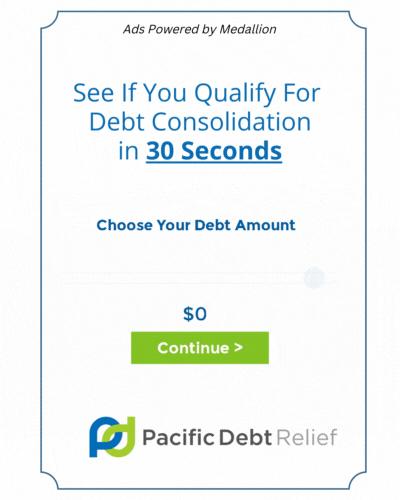Financial Planning With Sabres Capital
Sabres Capital understands that life happens, and sometimes, debt is inevitable. You can avoid high daily compounding interest and save money for your future and family with a Sabres Capital debt consolidation loan for your unsecured debt.
Based on Sabres Capital customer reviews, with this one easy step, you can take control of your finances and save thousands over the course of your loan. That’s money that goes into your pockets – not to your lenders or credit card companies.
Are you struggling to keep up with or are overwhelmed by the number of different debt payments you need to make each month? Not only do you most likely have multiple outstanding credit card balances but also need to repay your car loan, student loan, and medical bills. Perhaps you think your life would be much easier with all these payments under a single roof. You might be interested in knowing that a similar solution exists in the form of debt consolidation.
Debt consolidation is a sound approach to tackling your debts if you wish to reorganize multiple bills with different payments, due dates, and interest rates. However, it has its own complications and drawbacks, which is why it isn’t for everyone.
If you searched for ‘should I consider debt consolidation, you’ve come to the right place. This guide will help you decide whether or not the method is right for you. Let’s begin with what is debt consolidation?

What is Debt Consolidation?
Debt consolidation is the process of bundling together different outstanding debts into a single place and are repaid through a single monthly payment to one source. Since you’ll have an extended repayment term, your monthly payments will typically be lower, which also means you’ll be in debt for longer.
It’s important to understand here that debt consolidation doesn’t mean debt elimination and is different from debt settlement. Plus, when you consolidate your debt, you won’t always get a lower interest rate. You’ll be paying for the loan setup and balance transfer, annual fees, and closing costs and yet, have a higher interest rate than the combined individual rates you’ve been paying up till now.
Now that you know what is debt consolidation, let’s study some of the pros and cons of
Benefits and Drawbacks of Debt Consolidation
Benefits
Make things more predictable: Even if you stay indebted for longer and end up paying more, you at least know what to expect regarding your monthly payments. The amount you’ll be paying will be fixed and stay the same for the entire loan term. You may thus have a much better grip on your finances.
Makes loan repayment simpler: Since you only need to care about and keep track of one payment amount and one due date, your monthly finances are a lot simpler with debt consolidation. This not only reduces your chances of missing payments but also simplifies your budgeting.
Possibility of a lower interest rate: Interestingly, the lending rate for debt consolidation stands around 11.9%, while the average for credit card rates is about 16%. While the actual financing terms will depend on your credit score, there’s still a chance to secure a lower interest rate than the existing ones.
Drawbacks
You may end up paying more: The origination fees charged by lenders can be around 3 to 5% of the total loan amount. Plus, if you have poor credit, your interest rate will likely be higher. These aspects will significantly add up to the amounts you actually pay. When you completely pay off your dues through debt consolidation, there’s a great chance that you pay more than what you originally owed.
Difficult to Qualify for: Lenders examine your credit situation to determine whether you qualify for a debt consolidation loan or not and set your financing terms. With poor credit health, qualifying for it can be extremely challenging.
Keeps you in debt for longer: If you want to relieve yourself from your debt burden as soon as possible, debt consolidation may not be for you. This is because, as mentioned earlier, it takes more time to get debt-free, typically around 3 to 5 years, with this route. Plus, failing to pay off the debt will not only hurt your credit score but may also put you in trouble as you may face legal action. Several other debt-relief options like debt settlement help you resolve debt a lot quicker.
When Should You Consider Debt Consolidation?
Keeping in view the advantages and disadvantages of debt consolidation discussed above, the strategy makes sense if your case involves the following:
- Your credit score is impressive enough to qualify for a low-interest or 0% credit card debt consolidation loan.
- You can pay off your chosen debt consolidation loan within five years.
- Your monthly debt payments, including your mortgage or rent, are less than 50% of your monthly gross income.
- Your cashflow is stable enough to cover your debt consistently.
When Should You Avoid Debt Consolidation?
If you think that consolidation is a silver bullet for your debt issues, you’ve been misinformed. It won’t be of much help if your debt burden is so enormous that you have lost all hope of repaying it. Similarly, if you have excessive spending habits, there’s no point in consolidating your debt because it will keep mounting while you’re repaying slowly with lower payments.
Also, if your monthly debt payment happens to be more than half your monthly gross income, don’t bother. Debt consolidation can exacerbate your state rather than improve it.
On the other end of the financial planning spectrum, if your debt is so small that you can repay it within 6 to 12 months, debt consolidation won’t save you more than a negligible amount. You might be better off with the debt avalanche or debt snowball method.
Conclusion
If you’re making only minimum payments on your credit card, it might take months or even years before you can free yourself from the debt. Plus, the accruing interest could be a lot higher than the initial principal. In a situation like this, debt consolidation is similar to the light at the end of the tunnel.
But again, whether it’s the right solution for you depends on your specific case. Use the insights provided in this article to decide whether you should consider debt consolidation or not. If you feel it’s not the right option for you, there are many other routes such as debt settlement.
Now that your question of ‘should I consider debt consolidation is answered, we hope that you take the right decision and pay off your debt sooner than you expect.








